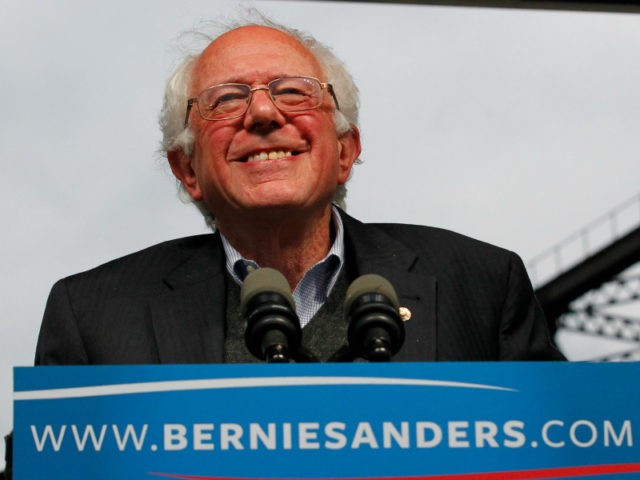The Indiana primary ended the fight for the Republican nomination, but it has given a burst of new energy to Hillary Clinton’s Democratic rival, Vermont socialist Sen. Bernie Sanders.
As the GOP begins uniting after a primary featuring 17 major candidates, Hillary Clinton has to continue her battle against her lone challenger, Bernie Sanders.
Hillary Clinton has been the presumptive Democratic nominee for 2016 as soon as President Barack Obama was inaugurated in 2009. It would be redundant to list all the institutional advantages she has over Sanders. The overwhelming majority of superdelegates, the powerful party insiders who make up 15 percent of the total number of Democratic delegates, back her over Sanders.
Last week, after big wins in four of the five Northeastern states making up the “Acela primary,” plus a landslide victory in her adopted home state of New York, she looked to be on a certain path to easily claim the nomination ahead of the Democratic convention.
Amazingly, Donald Trump’s victory and Hillary’s loss in Indiana means the Republican party will begin consolidating behind its nominee months before Democrats can do the same.
Bernie Sanders’s upset win in Indiana was notable for a couple reasons. Hillary had the clear lead in all public polling heading into the contest, delivering another black-eye to pollsters this primary season. In the RealClearPolitics average of polls, Clinton lead Sanders by 6.8 points on the eve of the vote. Sanders actually won by the same amount, 6.8 points, marking a nearly 14-point swing.
Sanders’s victory came less than a week after most of the media decided the Democratic race was over. After his outsized losses in the “Acela Primary” last week, the media reported that Sanders was laying off campaign staff and continuing in the race only to possibly impact the Democrat platform.
It was assumed that Clinton would be able to claim the nomination with a majority of pledged delegates, not necessarily needing the votes of superdelegates to clinch the party’s nod. To the national scorekeepers, the outcome of the Democratic nomination fight was no longer in any doubt going into Indiana.
Democratic voters in Indiana clearly had another opinion, if only to register that they aren’t quite ready to confer the nomination on Clinton.
The Clinton loss in Indiana is also meaningful because she had managed to beat Barack Obama there in 2008. The Indiana primary then, like now, came late in the primary season, when Clinton was already well on her way to losing the nomination to Obama. It was a hard-fought win for her.
Indiana Democrats, in other words, stuck by Hillary Clinton in 2008 when she was losing in other states. It is remarkable, then, that they rejected her this year when she was poised to effectively wrap-up the nomination there.
For all the hand-wringing by the media and many Republicans about the Trump candidacy and its impact on the GOP, the Democrats are facing an equally fractious party.
Hillary Clinton is simply a terrible candidate this year, unable to even put away a challenger who was long considered a gadfly candidate, running only to earn a platform for his views. Sanders himself often seems uncertain whether he is running to be the Democratic nominee or an elder issue-statesman of the Party.
The twin headlines coming out of candidate can’t be a comfort for Democratic Party leaders. Donald Trump, as improbable a candidate as he seemed initially, has dispatched a crowded field of credible and serious challengers.
Hillary Clinton is not only still fighting for her party’s nomination, she may need the votes of party elite delegates to hand it to her. She isn’t likely to win the Democratic nomination through the votes of Democrats voting in primaries and caucuses. She will need the party establishment to drag her across the line.
Trump’s securing of the Republican nomination in Indiana is obviously the biggest story of that primary. Sanders’s ability to keep his campaign going with a win there, may turn out to be the more important story though.

COMMENTS
Please let us know if you're having issues with commenting.